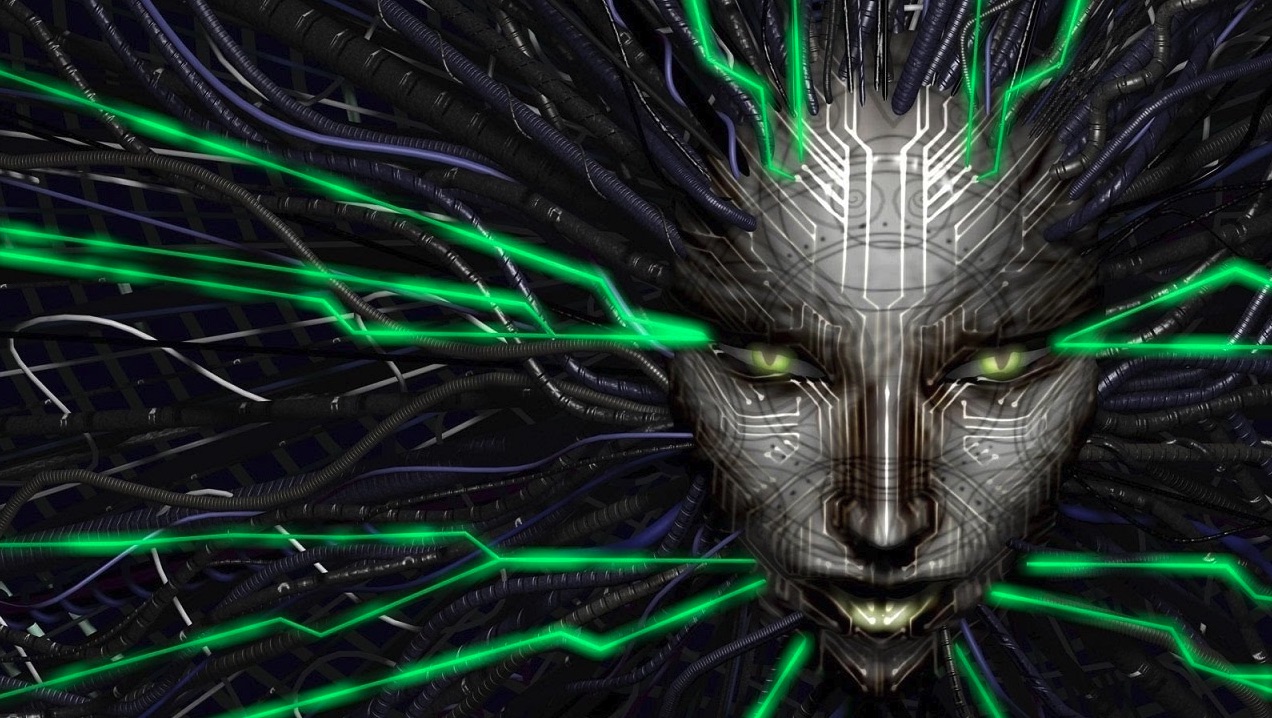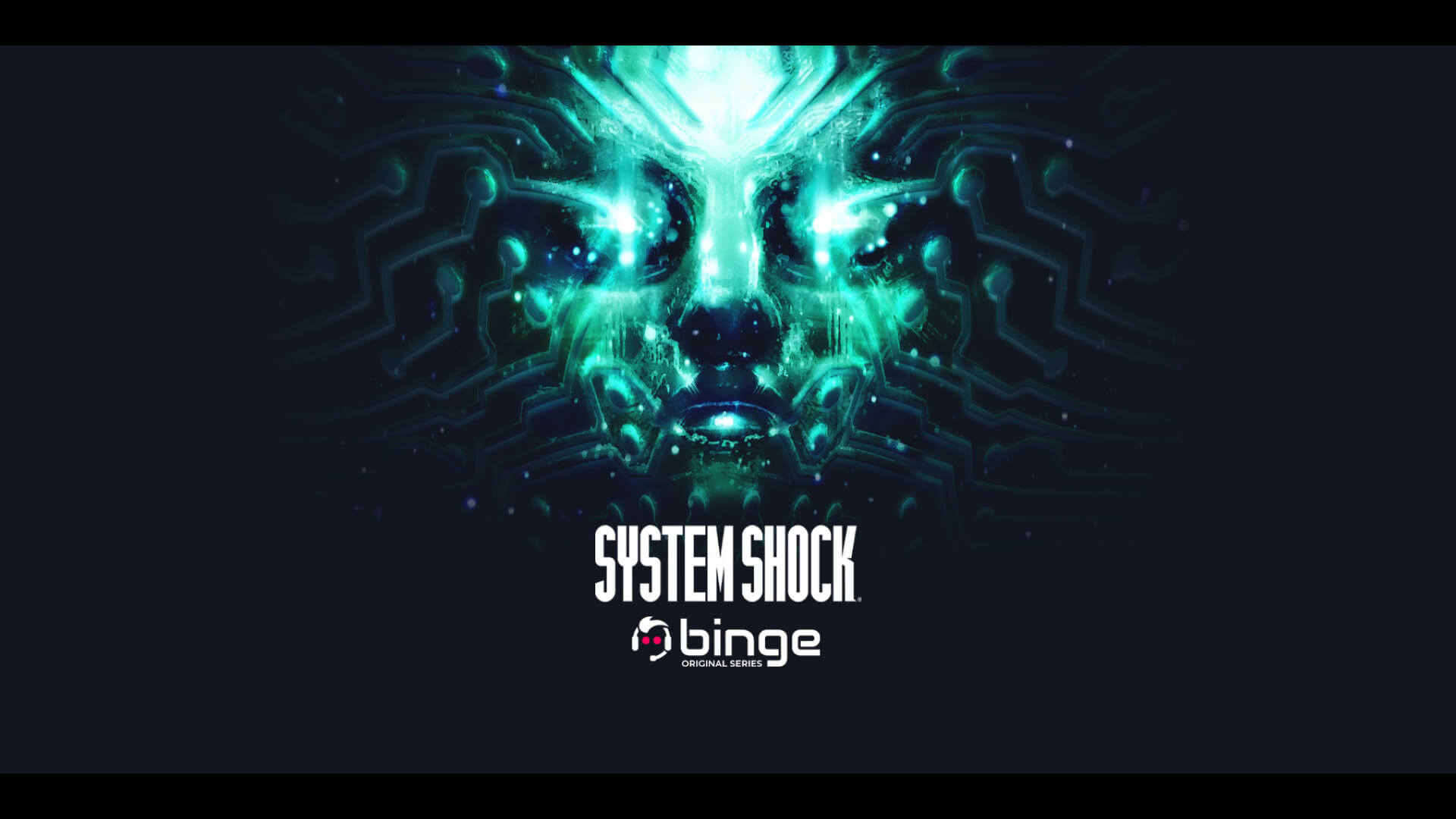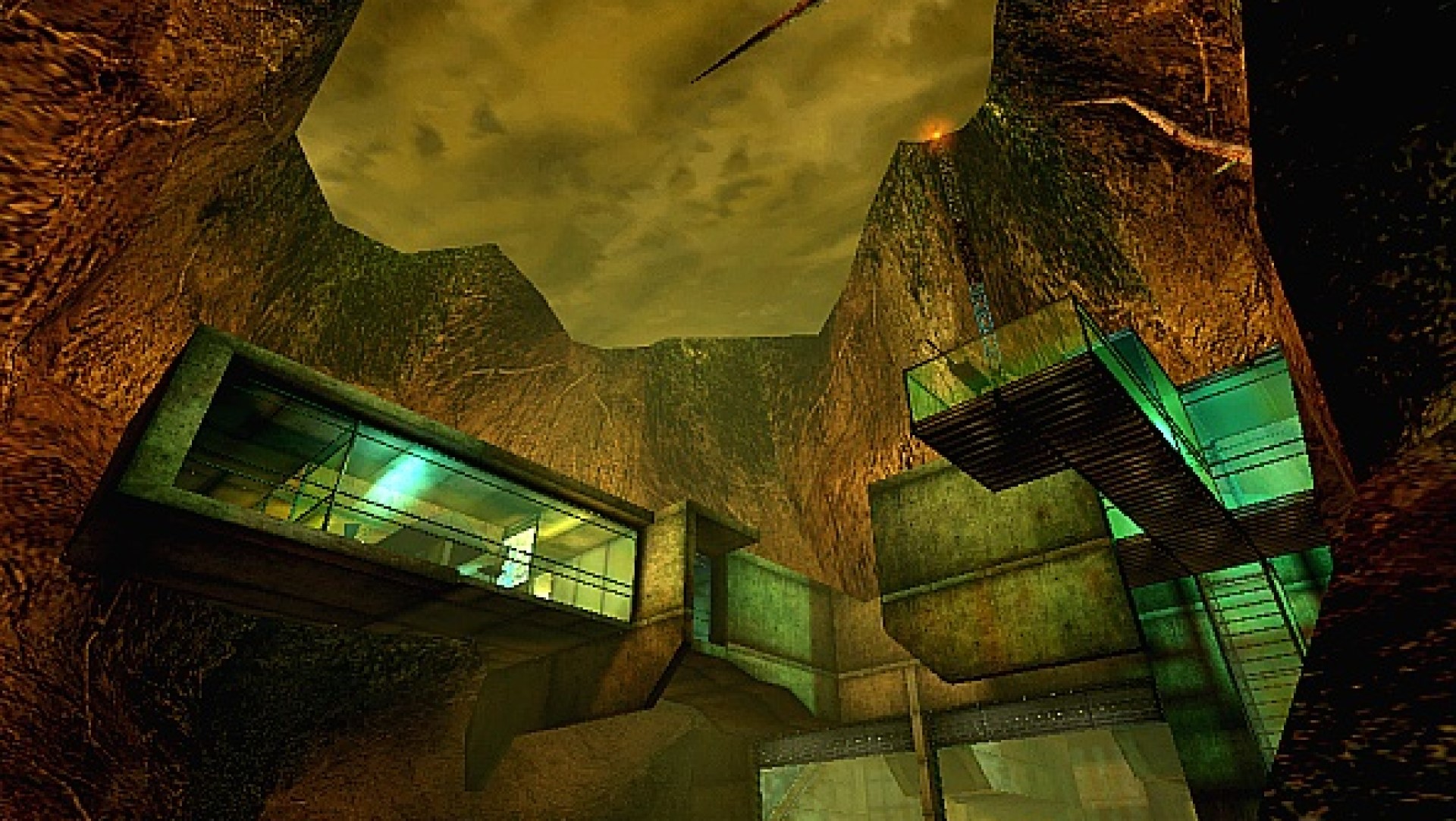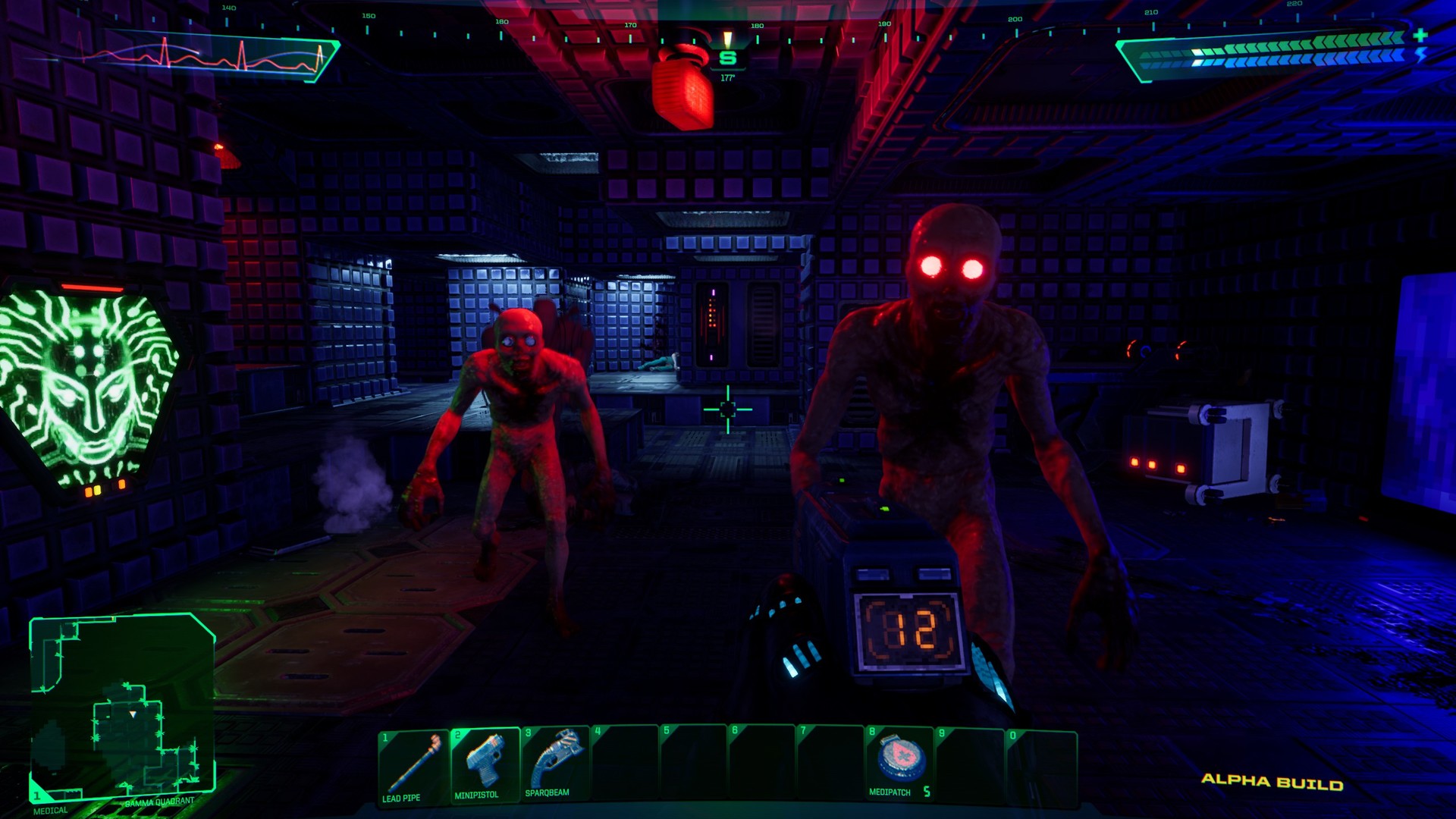
Monster Mania: System Shock’s S.H.O.D.A.N. Remains A Cautionary A.I. Nightmare
Monster Mania is a weekly column celebrating the unique and varied monster designs in horror gaming.
Nightdive Studios’ System Shock has come a long way. The studio broached remaking the 1994 original from Looking Glass Studios all the way back in 2015. Almost a decade of development, a million-dollar Kickstarter campaign, and changing game engines later, System Shock (2023) is finally here, and it couldn’t be better. This modernizing retains the core immersive sim bliss of exploring Citadel Station and re-familiarizes gamers with the mother of all rogue A.I.’s, S.H.O.D.A.N. (Sentient Hyper Optimized Data Access Network).
The primary antagonist of the System Shock series, S.H.O.D.A.N., is the ever-looming threat that observes and attempts to hinder the player’s progression. Originally designed as a self-sufficient A.I., her programming was altered by the player (at the behest of another character with ulterior motives), and thus S.H.O.D.A.N. assumed control of the station and proceeded to slaughter or alter the entire crew.

And by “alter,” I mean turning the crew into increasingly horrific cyborgs and mutant amalgamations of meat and metal.
As S.H.O.D.A.N. is an A.I., the player won’t frequently encounter her outside of her cybernetic patterns displayed across various monitors strew amongst the station. Initially, the idea of an antagonist confined to cyberspace may seem underwhelming, but this is where the importance of Terri Brosius’ performance shines.
Without question, Brosius’ performance makes my short list of favorite voice actors in games. There is more to S.H.O.D.A.N. than just her spouting her god complex across the station’s speakers (which, to be clear, is menacing as hell). Instead, the presentation of S.H.O.D.A.N.’s voice and its glorious imperfections make the performance timeless. S.H.O.D.A.N.’s speech is chaotic, almost unhinged in how it comes across in audio logs and direct transmissions with the player. Her discordant voice is glaring, showing the imperfection of her sentience, revealing her going off script one stutter or repeated syllable at a time.
A technological abomination, trying to figure out how to operate outside her intended programming, is an all too recent horror story within the contemporary A.I. community. Her speech pitch haphazardly changes and stutters, never allowing the player to forget that a monster monitors their every move. And while the delivery has everything to do with the character’s timelessness, it is hard not to be struck by iconic lines such as,” Look at you, hacker: a pathetic creature of meat and bone, panting and sweating as you run through my corridors. How can you challenge a perfect, immortal machine?”
A god-complex antagonist is nothing new. However, it is seeing the ramifications of that complex wandering the halls of the station that nail home just how far off the reservation S.H.O.D.A.N. has strayed. Given a lack of a physical being, the player must contend with S.H.O.D.A.N.’s minions. And if you thought the enemy designs were something in the original, Nightdive truly cannot be commended enough for rebuilding them from the ground up.

Mutants, some in tattered clothes as if they ripped through their old bodies’ wardrobes to fully assimilate into this new being, are humanoid husks that feast on the corpses of their dead coworkers. Cyborgs have several forms, such as a Borg-like model with laser targeting and wires protruding from their heads. And while variations exist for each subset of minions, none is more emblematic of that god complex than the cortex reaver.
While most minions could be described as S.H.O.D.A.N.’s experiments as a newly formed god, the cortex reaver is her perverted vision of perfection. Long, metallic spider-like legs connected to a metallic core from which a human body dangles. This victim, an unwilling puppet, hangs from its neck as its head is the cortex reavers power supply. Operating within both real space and cyberspace makes for a foe that is an imposing threat no matter how the player comes across them.
Finally, having traversed Citadel Station for the first time, I find highlighting remakes such as System Shock essential, especially in a year where we have seen remakes of some of the most beloved horror games of the 21st century (I don’t know if you guys know this or not, but people have thoughts onSilent Hill 2). While it may be easy for a game such as System Shock to be forgotten amongst 2023’s remakes, having the opportunity to experience the game in a more modernized state, free of antiquated visuals, mechanics, or handling, is only a positive in terms of entertainment and gaming history.
For more horror game reviews, opinions, and features, check out DreadXP.




